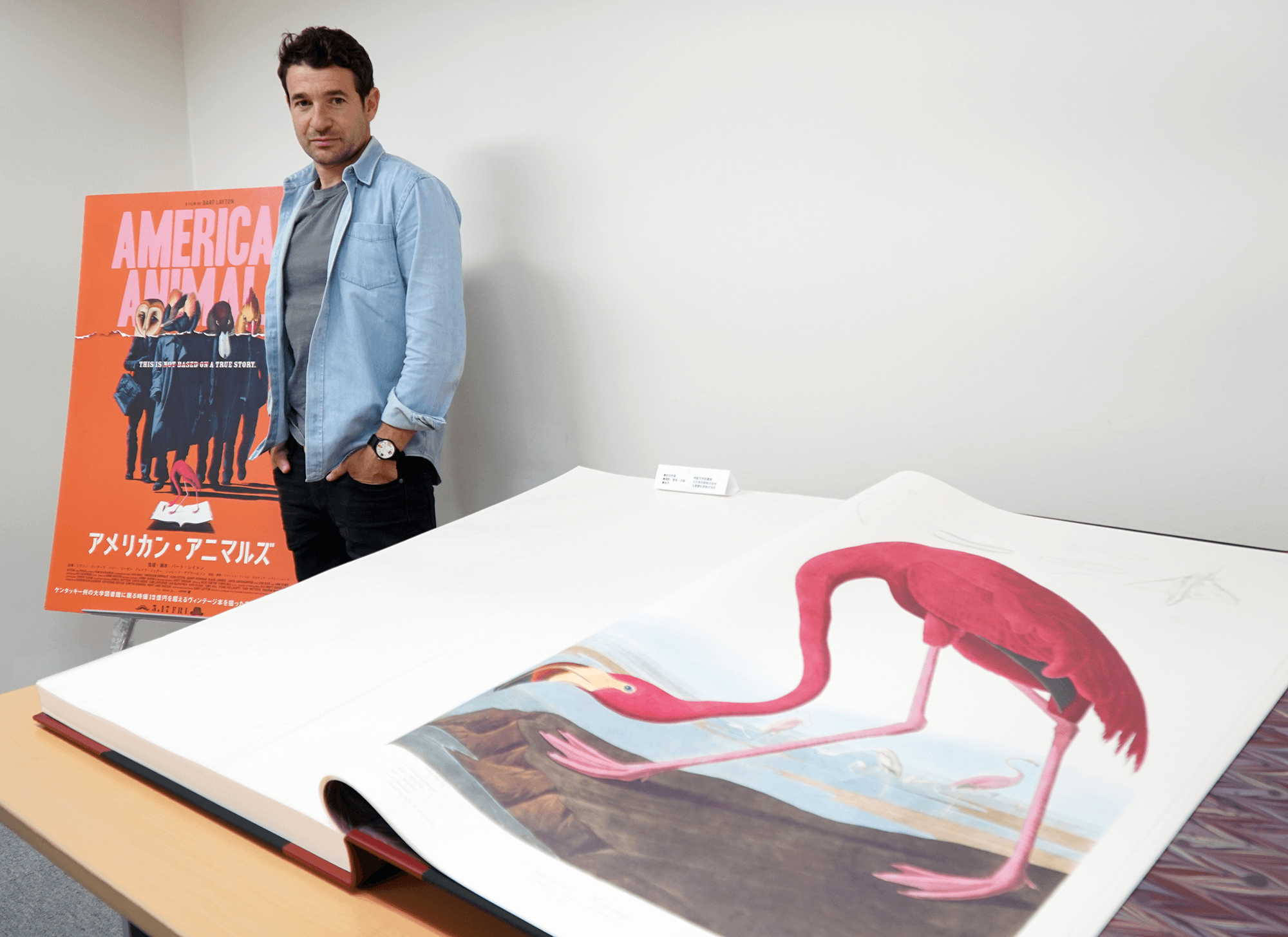![The meaning behind the documentary director's filming of ``American Animals.'' Director Bart Layton [Director's Interview Vol.27]](https://cinemore.jp/images/4231439356097425c499bde372ef8ae2de8e5669832a818f0c63c238080ae31d.png)
The meaning behind the documentary director's filming of ``American Animals.'' Director Bart Layton [Director's Interview Vol.27]
Changing production style
Q: One of the features of this work was the way the directing style changed. Sometimes it became stylish, sometimes it became more realistic.
Layton: Yes, I changed the style depending on the scene. Specifically, I adapted the camera, the color scheme on the screen, the music, etc. to the situation the characters were facing at that time.
For example, he portrays teenagers aimlessly waiting for something in life-size, and as the robbery plan begins to become more realistic, he enters a dramatic fantasy world... From there, the cinematic language also changes. By reducing the documentary elements, using a Steadicam, and changing the genre of music, he created the atmosphere of crime movies like " Reservoir Dogs " (92) and " Ocean's Eleven " (01).

Q: With this kind of direction, the film makes the audience feel like they are accomplices. But I imagine there was an ethical dilemma in using a real crime with a victim as the subject matter...
Layton: Of course what they did was wrong, legally and morally. As you say, the audience becomes complicit in their actions, wants to know what happens next, and sometimes even roots for them. They join in the fantasy of a Reservoir Dogs-like crime plot.
In this film, fantasy and reality collide when the plot actually begins. The production then switches to a more realistic world. The moment the line is crossed, we see what really happened, not the fun George Clooney-style situation in Ocean's Eleven. There is a moment of reality.
The audience watching them have the same experience. When they return to reality, they realize that there are victims out there who have been subjected to terrible things. By that point, it's too late, and they can't go back even if they want to. It's important to let the audience experience this, and I think this is where the ethical answer lies.
And I wanted the audience to understand that this is reality. This is why I, a documentary director, decided to make this film.
Q: I see, I understand. Will your next film also be based on a true story?
Layton: Actually, for my next project... it will be the first time I've ever done something that is not based on fact, it's completely fictional.
However, even if it is fiction, if it doesn't look like a true story, it's not interesting. I'm now thinking about how to present it as a true story to the audience, so that the audience is fooled into thinking, "This is a true story."
"American Animals" established a new way of telling a story, and in that sense, it may become a title that will go down in film history. Director Bart Layton has an experimental spirit and dexterity, using his experience as a documentary director to straddle genres and change his directing style depending on the scene. I look forward to his future endeavors.

Original collection: Meisei University, photography and printing: Dai Nippon Printing, production and sales: Maruzen-Yushodo
Written and directed by: Bart Layton
American Animals marks his directorial debut as a feature-length drama. In 2012, he directed the documentary The Imposter, which was critically acclaimed for its originality and narrative style, receiving 30 nominations and 12 awards at film festivals around the world, including the Austin Film Critics Circle Award, BAFTA Best Debut, and British Independent Film Award (Best Documentary and two other awards). He is known for his innovative style and journalistic approach to challenging subjects. He was Creative Director of Raw, a major UK production company, for 12 years, where he has worked on a number of award-winning documentaries and series. The Imposter is the highest-grossing documentary of all time in the UK.

